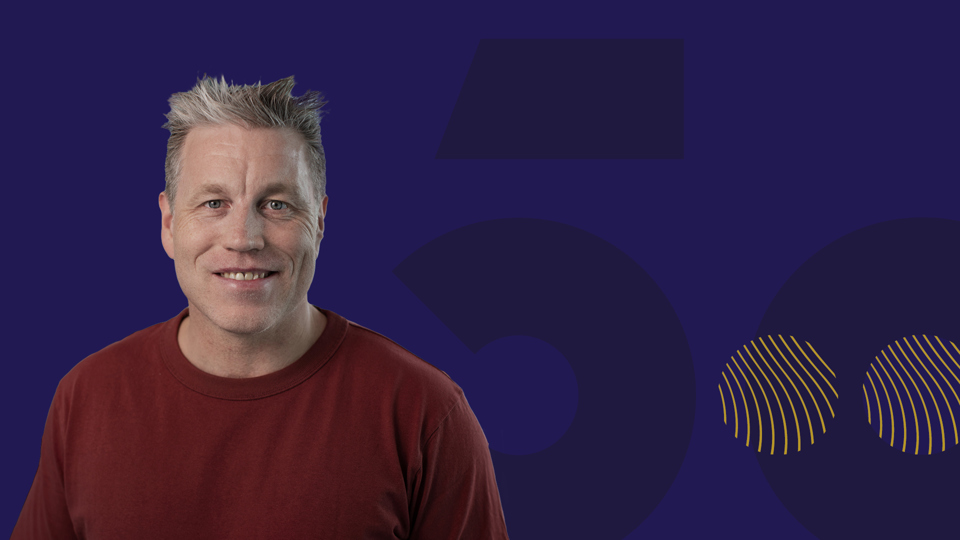For him, the combination of the creative process and the technical aspects of the profession has always been the appeal:
"For me personally, it has been like coming home to what I thought was really exciting and fun as a 10-year-old. Playing with computers and seeing if you could get it to do something it shouldn't do. Finding holes in things," he adds.
Research on cyber security has developed enormously in the years that Jens Myrup Pedersen has been involved in it. Especially in the past five years where there has been major societal focus on cyber security – or lack thereof.
"This wasn't the case when I started," says the professor.
Focus on community
In the beginning, two researchers at AAU were working on cybersecurity. Today, they are a whole group, and both a Master's programme and continuing education have been added.
"It's been great to be part of building something from scratch. To have your spirit influence it – to be allowed to create a community around it," says Jens Myrup Pedersen.
The professor is a highly popular teacher, and in 2022 he received the Ministry of Higher Education and Science's Teaching Award. He received the award for his engaging teaching, his focus on communities and feedback, and his ability to connect teaching and real-life issues.
Among his favourite times at AAU are also the moments with his students.
"I am most proud of my work when I talk to students at the annual graduation ceremony who feel they had a great time during their studies. Where we have succeeded as a community in providing a good study environment, cool courses and projects, good networks and collaboration opportunities for the student. These are things we deliver as a team and as an organization," says Jens Myrup Pedersen.
The professor thrives in the ample freedom at AAU that has allowed him to experiment with new ways of doing degree programmes and projects.
"There has always been great support for trying new things. If I've run up against a brick wall, it's always been something you’re able to solve together. There has been a good pioneering spirit. And I think there still is," says Jens Myrup Pedersen.
AAU – a "real" university
During the time he has been in the organization, AAU has grown significantly in size, and in his eyes, the university has gone from being a "little-brother university" to a "real" university.
No one wrinkles their nose anymore when he says he comes from AAU. The university has top-class international research environments, performs well in rankings, and there is research that supports the value of problem-based learning.
"For better or worse, it has become a more professional organization," says Jens Myrup Pedersen.
He elaborates:
"This means that there are some things you can succeed with in the long run where before each department was more internally focused. But it also means that decision-making processes have become longer, which can try your patience. But I don't think it fundamentally changes the fact that AAU has a pioneering spirit where really good ideas are given a chance," he explains.
Jens Myrup Pedersen has also seen some entirely different external requirements for registration and documentation. This was the case, for example, in connection with the establishment of the 4-year-old Master's degree programme in cyber security.
"Setting up a degree programme today is completely different compared to when I started at AAU. Then you practically just did it – or at least that's how I remember it," says Jens Myrup Pedersen.
The professor hopes that AAU will continue to be a workplace that provides space and supports initiatives that arise from the ground up.
"That's how we develop. By trying new things," he states.
In his view, the university's great potential for development is in the interdisciplinary collaboration between the humanities and social science research areas and the STEM subjects.
"Many of the problems we will have to solve in the future require us to work together across disciplines. So AAU has huge potential that I hope we can better exploit so that we get more researchers and students to work together across the university," he says.
